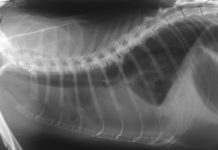Have you noticed a nasal discharge that comes from your cat recently? Is the runny nose of your cat still normal or is something, which necessitates a visit to the vet? Let us get to learn more about the causes, prognosis, as well as the possible treatments for runny nose in cats. Give this article a read and get to learn more about it.
Runny Nose in Cats: Is it a cause for concern?
In case your cat is experiencing a runny nose, you might be wondering when should you bring it to the vet. There are some causes of the runny nose that are just minor and don’t necessarily need any treatment. However, some other causes of the condition are serious and need immediate medical attention. Furthermore, it is always suggested to pay a visit to a veterinarian when the cat is having a runny nose.
Just like with humans, cats may suffer from runny nose too. A runny nose is actually common on cats and somewhat easy to spot. It might happen in one or both of the nostrils of the cat. Further, the discharge might be clear or have some color, varying on the primary cause.
Cat’s Runny Nose: Causes

When you see a clear nasal discharge that comes from the nose of your cat, this commonly indicates that the cat may have a viral allergy or infection. Furthermore, the colored nasal discharge is because of the presence of the dead tissue and white blood cells as happens with chronic rhinitis and the secondary bacterial infections.
The most common among all the causes of cat’s runny nose is the upper respiratory disease complex. Feline herpesvirus and feline calicivirus are widespread in the population of cats. Following or having an acute virus-related infection, a lot of cats stay unceasingly infected and shed the virus incessantly or intermittently in the case of the feline calicivirus.
Less universally, the runny nose of a cat may be due to some other things, other than the viral infections. A foreign entity stuck on the nose, tooth root abscess, or nasal tumors may cause nasal discharge or runny nose in cats. In case the discharge comes only on one side of the nose, or in case one side of the face appear to be swollen, the veterinarian may suspect any of these causes.
For much better understanding, here are the list of causes of cat runny nose:
- Nasal polyps
- Pneumonia
- Head trauma
- Foreign objects on the nose
- Tumors
- Fungal or bacterial infection
- Cat flu or upper respiratory infection
- Allergies
Cat’s Runny Nose: Symptoms
The runny nose is often characterized by the sudden discharge on the nose. The cat owner might notice a thick or watery discharge, which is either colorless or clear. Nevertheless, the nasal discharge might also have blood, pus, or streaks in it. This is what gives it a somewhat green, yellow, or red color. Some of the symptoms, which may come with the runny nose are as follows:
- Weight loss
- Loss of apetite
- Stuffed nose
- Eye discharge
- Sneezing
Runny Nose in Cats: Prognosis
A veterinarian might be able to determine the cat has a runny nose by simply observing it. Nonetheless, you still need to inform your veterinarian some other symptoms that you may have noticed, other than the runny nose. This is for your vet to diagnose any underlying condition. In case the discharge is clear, the vet might identify the cause to be allergy, without any further examinations. Nonetheless, if there is pus or blood in the discharge, additional testing might be needed.

A comprehensive biochemistry and blood count profile might be performed to see if there are any irregularities. For instance, a high level of white blood cell count might be an indication that an infection is causing a nasal discharge. Furthermore, the vet might as well swab the nasal cavity’s inside. This is to test the bacterial discharge or the fungus. If the vet tend to believe that there is some other cause of the nasal discharge, he or she might perform either an endoscopy or a CT scan. This is to look for polyps, foreign entities, or tumors.
Cat’s Runny Nose: Treatments
If your cat suspects that a viral infection causes the nasal discharge, an initial treatment commonly includes an antibiotic or an antiviral medication. Moreover, various ongoing cases nay need some anti-inflammatory steroids too.
In case the veterinarian treats the cat for a suspected vital infection, yet the cat does not respond to the treatment, the vet may recommend some anesthetizing. This is for the vet to do some oropharyngeal exam to check for the polyps, and CT scan, rhinoscopy, and x-rays, in order to check for some tooth root abscesses or other masses.
Moreover, among the most common causes of the runny nose in cats is the exposure to allergens. In case the vet thinks that this is the primary cause of the runny nose, testing might be recommended. This will be essential in figuring out what the cat is allergic to so that you may reduce or eliminate the exposure of the cat to allergen.









